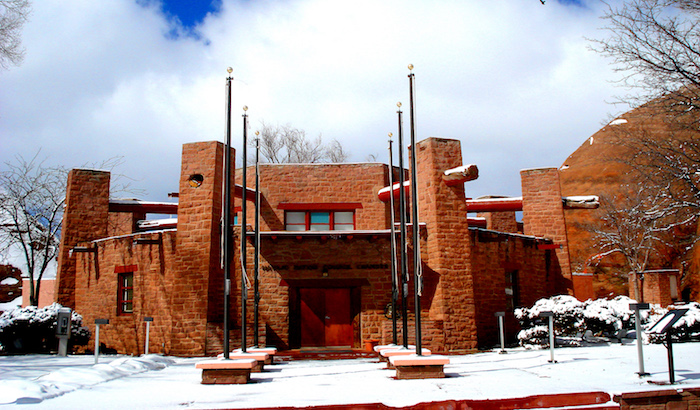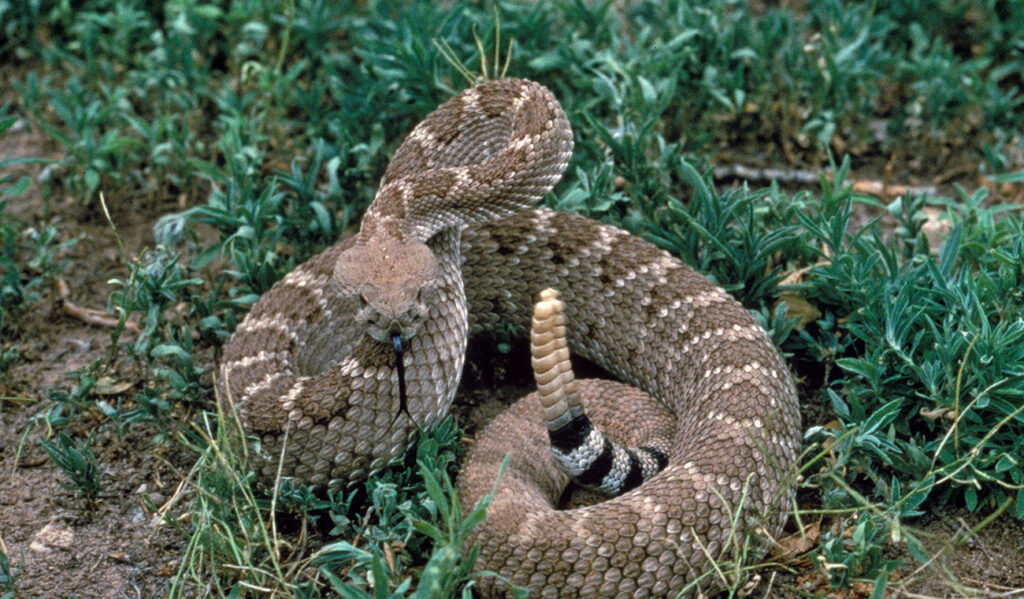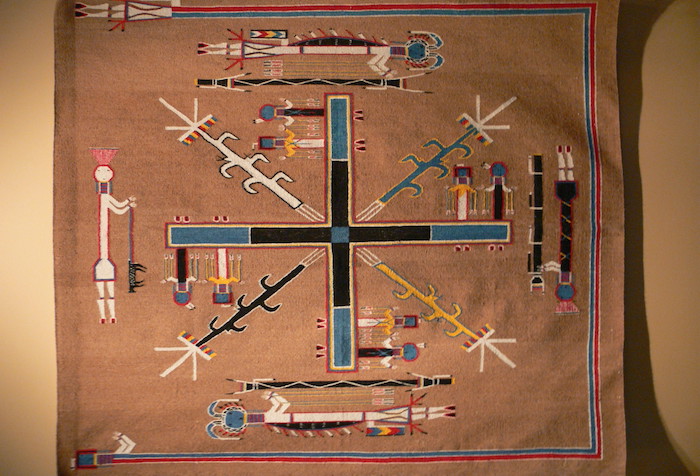Back in July, I did a piece about how giving your PCs personal taboos can generate adventures. I’d like to return to the idea of taboos driving plot, this time with a regional focus. Virtually all human cultures have taboos. Americans, for example, have a weak (but real) taboo against discussing imminent death, disease, or mutilation, and a strong taboo against cannibalism. The latter is found in most cultures; the former is not. Incorporating these sorts of regional, culturally-specific taboos in your fictional campaign setting can spice up an adventure or short series of adventures in the same region.
In the last piece, I used Medieval Irish taboos. This time, I’ll illustrate the ideas with 20th-century taboos from the Navajo (Diné) nation of the American Southwest. My source is Navajo Taboos by Ernie Bulow, a non-academic text sanctioned by the Navajo nation. Bulow taught for decades at an all-Navajo high school in Fort Wingate, New Mexico. His students were his sources, and through them, their families. Lacking as it does the theoretical framework of a ‘real’ anthropologist, Bulow’s book focuses more on how these taboos enrich and streamline the daily lives of ordinary people. Fortunately for us, that’s exactly what we’re after!
This post is brought to you by beloved Patreon backer Arthur Brown. Thanks for helping keep the lights on! If you want to help keep this blog going alongside Arthur, head over to the Patreon page – and thank you!

Image credit: William Nakai. Released under a CC BY-SA 3.0 license.
How are these taboos useful to you, the roleplayer or GM? Let’s start with a few taboos about snakes. Snakes are bad news in Navjao country, though they’re also associated with rain and lightning. Most of these taboos reflect a healthy respect and mistrust for snakes. Seven good ones are:
– Don’t cross a snake’s track unless you shuffle your feet. You’ll get leg aches.
– Don’t eat while a snake is watching. Later in life, your throat will close up.
– Don’t watch a snake eat or drink. Your neck will close up and you’ll lose your voice.
– Don’t pee while a snake is watching. The snake will get jealous of your pecker and turn your spouse yellow.
– Don’t shoot at a snake. The shot will miss and hit something valuable.
– Don’t touch a snake. It has nothing, and soon you will have nothing too.
– Don’t kill a snake. Your back will get crooked.
Let’s say you’ve decided you want to integrate cultural taboos into the region your PCs are entering and will be adventuring in for a time. The first night they’re in the area, there’s a snake watching them make camp. When a male PC goes off into the bush to pee, he sees the snake. The snake hangs around the camp the rest of the night. Let things play out naturally, but keep a list of which PCs violate which taboos. The next morning, the snake is gone, but the PCs have a bevy of new ailments. When the PCs go into town for some help, the doctor immediately recognizes this as snake taboo violations. She’s able to clear everything up, but passes the PCs a list of regional taboos and explains it’s very important they obey the list. Then pass your players the same list so they can read it and see the restrictions on their behavior – and the consequences of violating the taboos.
This incident drives home the importance of taboos in a non-permanent way your players are unlikely to begrudge. Now they know that taboos really matter here and they have a list of taboos so they can make informed decisions going forward! When making a list for your campaign, fill it with taboos that drive home the themes you want the region to have. Some should be complicating factors: actions your PCs were likely to attempt. They may still attempt them, and accept the consequences of doing so. Other taboos are secret adventure hooks!

Let’s talk about complicating taboos first. The Navajo have a bunch of suitable ones:
– Don’t yell when it’s raining. You’ll be struck by lightning. Putting a combat in a rainstorm can complicate it with this taboo. To be heard above the wind, the PCs will have to speak up – and roll to see if it’s loud enough to trigger the consequences of the taboo. Can they carry out a combat without communicating?
– Don’t talk to dogs or other animals. They might talk back, and if they do, you will soon die. This one’s a little obvious for settings with magic powers like Speak With Animals, but it also complicates the American habit of talking at our animals. It could be fun if the players forget about this taboo and start talking to the friendly mutt you have wander in – and then one player suddenly remembers “Oh, God guys – the taboo!”
– Don’t walk right up to someone’s door when visiting – call out and wait to be invited up. Otherwise you’ll bring in evil spirits from the road. In a rural context, this gives the homeowner a chance to call off their dogs first, too.
The following taboos about tracks are useful complications for a scenario where the PCs have to track someone. They’re not encounters in and of themselves; they complicate other encounters (like combats and puzzles) that occur along the way. Alternately, you can set an encounter in a space where there happen to be other tracks as a complication.
– Don’t step on the ribbon-like marks in the sand left by running water at the bottoms of dry arroyos and washes. You’ll cause a flood.
– Don’t step on a bear’s tracks. You’ll turn into a skinwalker.
– Don’t step in someone else’s footprints. You’ll become crippled.
– Don’t leave a track in a cornfield. The crop will fail.
We have two taboos that can color social encounters.
– Don’t lie about yourself. Anything bad you say will come true.
– Don’t brag about your fine possessions. You’ll lose them.
We’ve got a bunch of good taboos about the dead. What’s key to understand is that in traditional Navajo thinking, there are no ‘good’ ghosts – only evil spirits that take the forms of the dead. So calling up the ghost of a dead person or having anything to do with a dead person is always bad news.
– Don’t use the name of a dead person. You’ll call up their ghost.
– Don’t talk about someone you don’t know, since they might be dead without you knowing it. Using their name will call their ghost.
– Don’t use anything you found broken. A dead person’s possessions are broken to keep people from using them and calling up their ghost.
– Don’t go into a graveyard, walk on a grave, or touch a human bone. You’ll call up their ghost.
Finally, two about witchcraft:
– Burn your hair and fingernails after you cut them. Ditto blood from a wound or most other body leavings. A witch can use them to ensorcel you.
– The exception is blood from a nosebleed. Don’t burn it or you’ll have headaches.

Image credit: Wolfgang Sauber. Released under a CC BY-SA 3.0 license.
You can also throw a few taboos on your list to foreshadow adventures in the region.
– Don’t stand on tall rocks. They will grow and carry you away into the sky. This has an obvious adventure hook: go fetch somebody back from the sky who foolishly stood on tall rocks. Maybe they got picked up by a cloud castle or flying spirit, and the PCs have to give chase.
– Don’t stare too long at the moon. It will follow you. Ditto this one: get the moon to stop following somebody who broke the taboo.
– Don’t make a baby laugh when it’s still tiny. It will grow up wrong. There’s an older Navajo belief that babies aren’t fully ‘people’ until their first genuine, unprompted laugh. Trying to get the baby to laugh early will thus impact their development – and not in a healthy way. This suggests an adventure hook: a town where none of the children will laugh. For years now, not one child has laughed. There’s all these soulless (perhaps even unnamed) kids running around. Can the PCs figure out why and stop it?
– Don’t kill a spider. Its relatives will come and bother you. If you do kill a spider, you must draw a circle around it and tell it “A Zuni did this”. The Zuni are a neighboring nation with longstanding tensions with the Navajo. By telling the spider it was killed by a Zuni, you redirect the curse onto your much-distrusted neighbor. If the PCs enter a town being overrun by spiders, presumably someone sicced the arachnids on the town. Can the PCs convince the spiders they’ve been deceived? Can they track down the deceiver?
This taboo business isn’t something you should do for every region – or even most regions – your PCs adventure in. But it can be a fun change of pace, and it will make the region you do use taboos in feel memorable and different!






